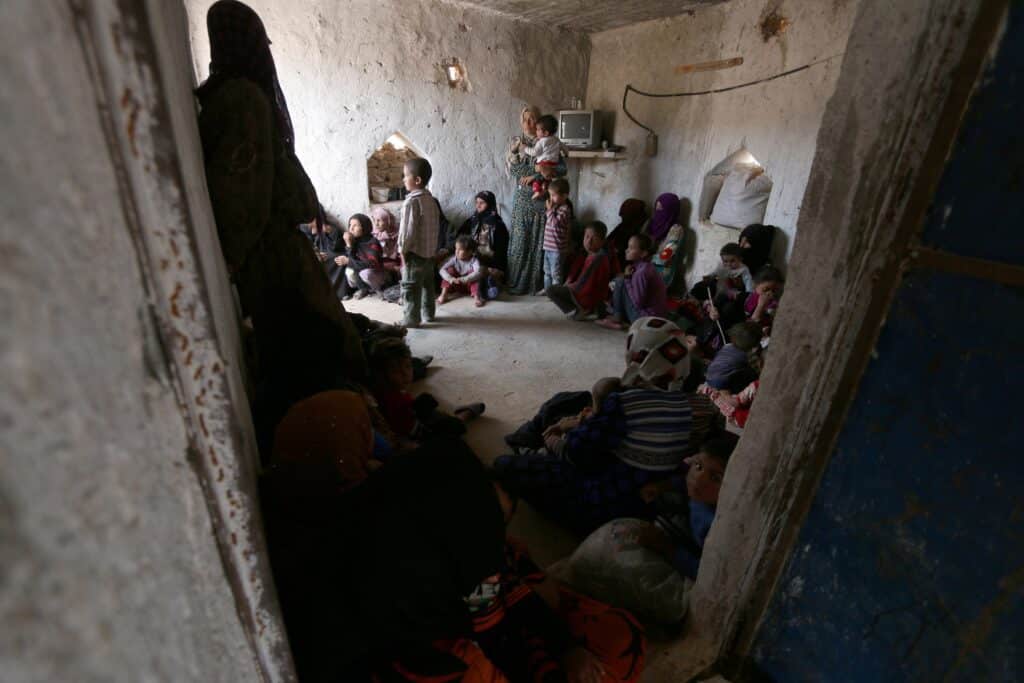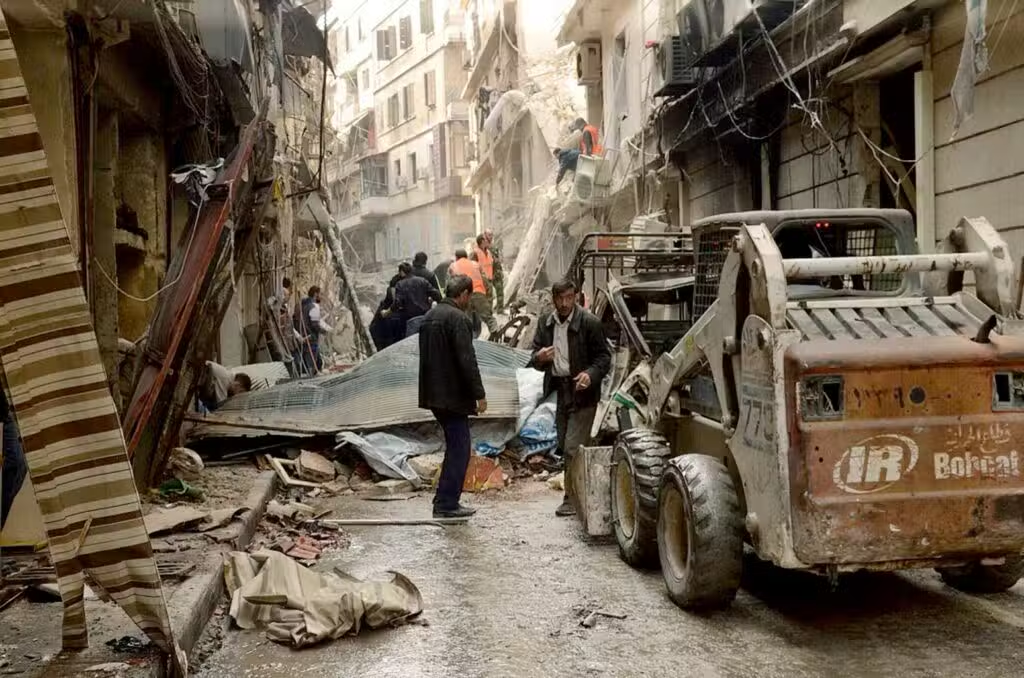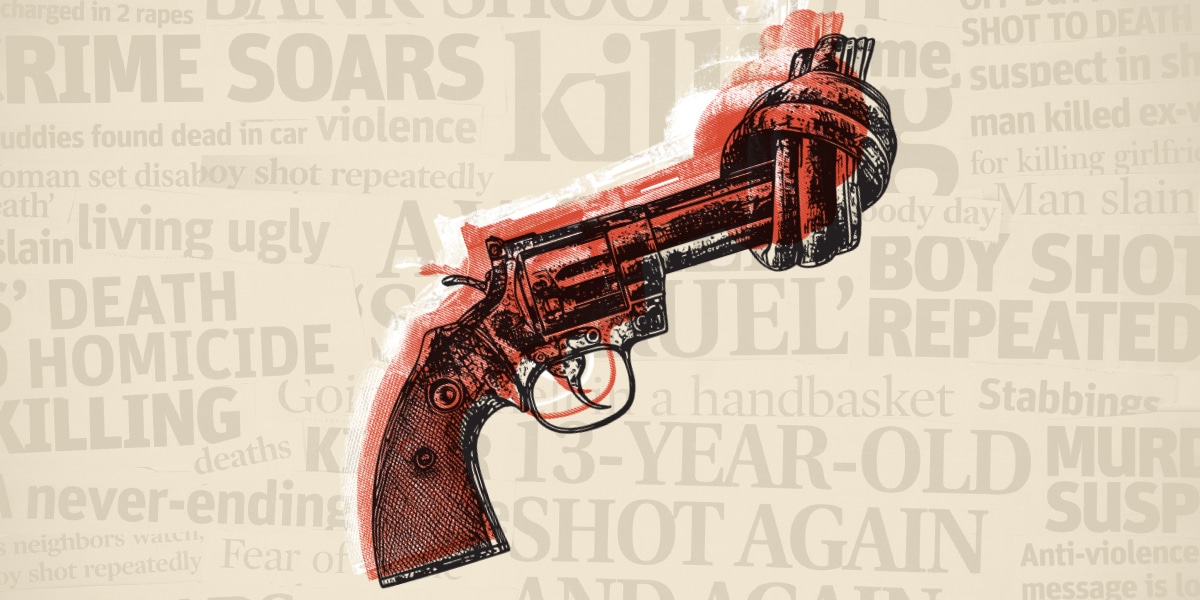He’s pastor of St. Francis Parish in war-besieged Aleppo. Here is an excerpt from his gripping daily journal.
I always wanted to study, from a young age and as a friar, but the Lord, through obedience and necessity, has brought me far from my studies. After having finished a licentiate degree in dogmatic theology in Rome, I registered for doctoral studies. My superiors said that I was greatly needed in the Custody, particularly in Syria (where 12 other friars minister).
In prayer and silence, I then made two requests of the Lord: to send me to a difficult place to do what I can and not allow me to see needs that I cannot meet.
In 2014, my superiors proposed to send me to Aleppo, a devastated city whose people had suffered greatly. I had been prepared to continue my studies in Italy, but the Lord’s will was not what I had thought. During my reflections and meditations before the Blessed Sacrament, I saw something completely different: the heart of the Good Shepherd was turned toward his sheep. Father Pierbattista Pizzaballa, then guardian of the friars in the Holy Land, asked if I was available. From my mouth came out the same reply I gave to the Lord many years ago, when I was 19 years old: “Here I am.”
The Daily Drama
Electricity arrives for half an hour a day. Recently we were without water for nine days in a row. On the fourth day, we turned on the big electric generator to pump water from our well and to open the doors to people. They immediately came to draw water to take home. Lacking water means that they cannot even eat. It makes an impression to see the elderly who have no one, and sometimes children, bringing empty and heavy containers, often along with young women and men, all lined up for a few liters of water.
The worst thing of all, however, is the bombs falling on homes. We are 150 meters away from an armed militia. Around our church, many bombs have fallen, almost as if militia members were aiming at us—and indeed it is so. In addition to those living in the houses, they kill young people, children, and others walking along the street.
There is a huge wave of suffering, despair, and bitterness because of all this death. In response, for a short time people run away, all trying to avoid this area; they go to other churches in different areas—even if those areas are not always safe—until this wave of sadness passes.
Then, slowly, normal life returns. This is what happened recently when a cylinder bomb fell very close to our church: it broke all our church’s upper windows, which fell upon the faithful during the evening Mass. A young person and a man, both Christians, died; they were buying things in a nearby store. There was the pain of the funeral, many people crying, the presence of all the clergy of Aleppo. With the passing of days, the fear subsides, and the people try again to live normally.
Several parishioners have addressed existential questions to me: “How long, Father, will we be put to death, one by one? How much longer can we remain here? Can’t you send them all away? Can’t you do something for us beyond what you have already done?”
The Importance of Presence
As a pastor, I am smoothing the way for Jesus to lead this mission. I act with compassion in my heart and allow that compassion to guide me. Perhaps the strongest sign that people perceive and love is that they know the parish priest, the friar, is ready to give even his life for them. Our people feel that this love is true: it is not merely words.
They feel through gestures and deeds that the only safety is to stand close together, go to church to pray, and follow what we tell them through the word of God.
The Experience of Self-Giving
I thought a lot about why the Lord wanted me here in Syria, about what this experience means for my spiritual path as a friar and a priest. By meditating, I have realized that God wants to give a pastoral shape to my ministerial life, allowing me to enter deeply into the pastoral life of these people. God wants me to experience this gift of the suffering sheep, that I have an extended experience with the suffering of God’s people in Syria. So I turn myself to God’s providence.
Although some had told me that going back to Syria would be too dangerous, that I should decline and finish school, I replied that I did not have the strength to refuse a request that, in my heart, I felt very strongly and deeply about. The strength of the Holy Spirit has also pushed me to say words that I had not even thought. I have felt a courage and a special sweetness; it is the sweetness of someone who succeeds in experiencing obedience even if he does not understand the reason.
Face of the Suffering Jesus
Responding to the needs we face requires immense courage. I think about the experience of the terrible cold that we have lived through this year, or the lack of water we have experienced for four years, periodically and without prior notice.
The people remain for a week, sometimes 15 days, without a drop of water in their homes. Thus, we friars have learned how to shower with a single liter of water, or to heat up only a modest amount, or shower with cold water (a terrible experience). This has made me think about how much waste we often generate, in terms of natural resources, electricity, water, and food. Once we recognize Jesus in these people, it becomes very easy to visit them and console them.

Women and children in Manbij, Syria, wait in a shelter while fighters of the Syrian Democratic Forces secure their village from Islamic State fighters.
(CNS photo/Rodi Said, Reuters)
Regarding food, we have decided to live as truly poor people and to experience concretely what it means to be hungry, to go without meat or fish, and to eliminate many unnecessary things; we try to live only with the minimum. One day a woman came, almost all her clothes in shreds, and told me she has two hungry young children who have had nothing to eat for days. She feared that the children would go out and steal or do anything to get food.
Only when we experience firsthand the hunger does the situation of the people become truly understandable. Perhaps what sustains us in these situations is remembering Jesus’ thirst on the cross; he was said to be thirsty, and see how he still suffers; it is not only thirst but also hunger, cold, and aching.
The Choice to Remain
Despite all this—together with many Christians who have already left the country, or would like to do so but do not have the means—there is a rooted sense of frustration. I have also met several individuals and families who have decided not to go away because, as they say, this is a holy land, irrigated by the blood of martyrs. Today they are strengthened by the merits of these great martyrs, and it’s up to them, and to us, to give our contribution for the faith of the future. To me this seems the most beautiful reason why many families remain.
I have lived in Aleppo since October 2014. I have never experienced, not even for a moment, the temptation to abandon my mission.
Stories of Intense Pain
The worst thing, no doubt, is not the house destroyed or damaged, but the fact that different people have lost their children or parents under the rubble. Many injured people are in clinics and hospitals, and it is unknown if they will survive.
A Christian family had a 15-year-old son who died under the rubble because of a missile that hit their house, completely destroying it. The father is now recovering in a clinic, and the mother, who still does not know the loss of her son, is in another clinic. She has a disfigured face and shattered facial bones; she has lost an eye, and it is not certain that she will ever see again. This woman needs to undergo a long series of surgeries. Every day, in homes and hospitals, we hear similar stories. We continually hear of emotional jolts that make us sharers in an intense pain that involves us totally as people. This is part of our ministry, “Rejoice with those who rejoice, weep with those who weep” (Romans 12:15).
Various Forms of Assistance
We friars coordinate some 18 volunteers who provide various types of assistance. At times, in welcoming people, we face 25 difficult cases in a day. For the most part, they are individuals or whole families who need every type of concrete help.
A few days ago, we distributed 140 boxes of good-quality food: a box for each family, which can make a bit lighter the weight of their survival. This distribution will continue for all the 624 families of the Latin rite; we are investigating a way to extend this service to 300 Armenian Catholic families, who totally lack food. In fact, we try to help people belonging to other religious faiths.
An essential part of our task is in any case the priestly ministry, which consists of confessions and celebrating Masses, even in the afternoon and with daily homilies. We also dedicate ourselves to pastoral visits in homes and in hospitals to meet the sick. For those who are close to death, we administer the Sacrament of Anointing and bring viaticum. Many people contact us for spiritual direction.
Sometimes, at the end of a long day, when the Internet works, we answer messages, trying to tell the world something about us; thus, we feel less alone.
Our Relationship with Muslims
Many times, in our churches and communities, during the prayer of the faithful, we have prayed for those who bombard us, for those who have killed several of us, and we did this alongside families who have lost loved ones. Not only do we think of ourselves when we distribute food parcels, but also of them. We do not follow any other ways because only this is the teaching of Christ.
New Missiles in Our Area
On the afternoon of Saturday, January 16, around 4:15 p.m., five rockets were fired on our area, on houses.
I was in the parish office with some employees, while in the waiting area several people were wanting to speak with me. All of a sudden, we heard the explosion. The first missile exploded about 150 meters from the church; we held our breath and called on providence. Next, there were other bursts until another missile exploded even closer. Instinctively, we all stood up and started trying to figure out where it had fallen; I telephoned several families close to where we imagined it had happened. After those conversations, we followed the firefighters into the streets.

Syrian citizens clear streets in late April after shelling in Aleppo. Chaldean Catholic Bishop Antoine Audo of Aleppo says Christians are losing hope, but not faith, as fighting continues.
(CNS photo/Syrian Arab News Agency handout via Reuters)
Despite having several times seen the scenario of bombed-out homes, I was immediately struck by a profound bitterness and sadness. We do not get used to so much wickedness: hitting unarmed people in their homes, especially the elderly, children, or young people who are studying in their rooms.
I went into every house and prayed with the families amid an intense agitation. There were no deaths, but people were injured, some seriously. Most of all, a huge fear is seen in their eyes. In prayer, in every home, I thanked the Lord that people were not killed.
Listening to the Cry of the Innocent
Sometimes I laugh to myself because, as a lover of books and advanced theological studies, I find myself in Aleppo doing the work of a fireman, nurse, caregiver, and, of course, the work of a priest. This is very nice because this is a real experience of consecrated life, but also the laypeople feel called to serve and build.
One day, I stopped a man who was carrying buckets, some of which were very filthy. I offered to carry them, but he did not want to accept my help: “Father, this is likely to dirty your habit.” I answered that our habit is meant to be used in service to others.
A Franciscan Prayer
In Aleppo, then, living a true conversion is natural. In this I see the surgery of divine providence—for our journey as Franciscans throughout the Middle East, especially in Syria. I perceive how the Lord uses all this unexplained pain to bestow a greater good, a special grace. This is the grace of conversion and returning to our origins, according to the teaching of St. Francis, who recommended that the friars not possess anything, but rather remain free from everything in order to take care of their mission alone—with the same heart of the Father who awaits his sons.
We friars continue to pray and encourage people to have confidence: the Father, tender and merciful, will not allow his people to perish. Because with our bodily eyes we do not see a future, we close them and look instead with the eyes of the heart, the eyes of faith. We fix our gaze not on the towering and threatening waves around us, but on the serene face of Jesus walking on the water, watching us and encouraging us to walk with him, unafraid of sinking.
These entries are part of a larger collection of Father Ibrahim’s letters to fellow friars and to Italian newspapers. They are published as a book, in Italian, by Edizioni Terra Sancta (Milan). We are grateful to Greg Friedman, OFM, at the Franciscan Monastery of the Holy Land (MyFranciscan.org), in Washington, DC, for bringing this book to our attention. Pat McCloskey, OFM, oversaw the translation.








